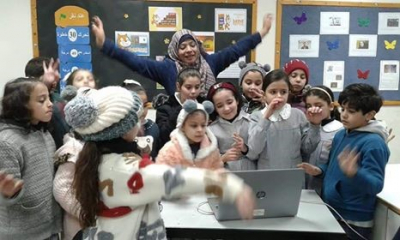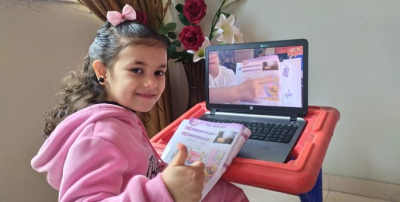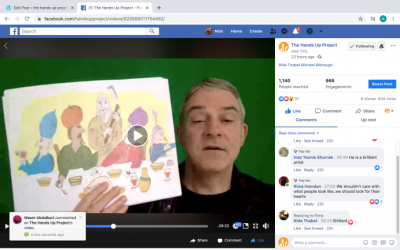No one could have ever imagined that the whole world might undergo such a dramatic change that is likely to reshape our perspectives on almost everything in such a short space of time! For the first time in history, the whole world is facing the same challenge. We seem to be fighting the same invisible enemy which doesn’t recognise borders and doesn't flatter the elite. In the past, wars or famine chased poor underprivileged people away from their homes while better off folk went on with their lives. I wonder if this new virus has come to teach humanity lessons in fairness, justice and equality? It has certainly managed to crawl into the bodies of the homeless as well as to infect the otherwise untouchable and privileged people such as royals, politicians and military leaders. It has already ended many lives and forced the rest of us to be locked down in our houses and palaces. Theories, values, and attitudes are currently being re-evaluated. ‘Social distancing’ has become the slogan of the day, and the best you can do to save humanity has turned out to be to comply with the order to ‘stay at home’.
The 5th of March started as a typical day in Gaza but turned out to be quite different at its end. Preparations for our 4th PATEFL conference on creativity were well underway and we were busy putting together the final touches. Out of the blue, firm restrictions were imposed to stop the spread of the COVID-19 virus. Accordingly, all events had to be cancelled, and people were required to stay at home. Everything was suspended as if life on earth needed a desperate break!
With schools closed, the online sessions organised by the Hands Up Project (HUP) had to stop as well. At the time, there were hundreds of students involved in online drama sessions and remote theatre activities run by a large network of volunteers from all over the world. These virtual sessions were conducted in schools in Gaza by local teachers and volunteers from around the world. They used to make a huge difference to the lives of students and to their learning. In addition to the above, these online activities included storytelling sessions, and other speaking activities like ‘show and tell’ done jointly with students in different countries. As well as developing their English skills, these activities provided young people with a voice in the wider world.
To be forced to ‘stay at home’ seems like a punishment, and ‘social distancing’ has negative connotations such as boredom, idleness and loneliness. However, in Gaza, we are used to ‘staying at home’ and being ‘socially distanced’! Thus, in many ways, we were perhaps better placed than many other contexts to deal with the situation suddenly imposed on us. Through the Hands Up Project's innovative work here, we already had an infrastructure in place to work very successfully with remote learning. In fact, teachers and learners here are very experienced in interacting through videoconferencing tools like Zoom for the simple reason that, for many years, this has been the only way that the vast majority of people were able to have any form of communication with the outside world. By the same token, Palestinian English teachers are very familiar with collaborative online projects with other English teachers around the world (see Sahar Salha's piece in the 2019 IATEFL Conference Selections: 'Enhancing teacher performance through online team teaching') and this has also stood us in good stead for what was to follow.
Two days after the ‘lockdown’, we were able, through minor adjustments, to continue learning through the existing large HUP network that connects volunteer teachers with thousands of (now quarantined) people all over the world. Children and adults now ’meet’, sometimes twice a day, to listen and interact with stories from different origins and cultures. It’s a growing community which started with international volunteer storytellers working with classes in Palestine and has now expanded to reach much larger audiences all over the world.
HUP Facebook live storytelling time has become an event to look forward to during the long days of quarantine. Once a storyteller goes live, viewers start to join as if they are part of a live audience sitting in a circle to watch a Japanese kamishibai or an Arab hakawati. New ways of approaching an audience are now emerging and they are doing an amazing job. I think this is a new phenomenon that should be studied; and its impact on learning researched. You can have a look at the stories and feel the power of interaction in the comments and the follow up videos students upload in response of the sessions at: https://www.facebook.com/handsupproject/videos/
In addition to the storytelling sessions, students, teachers and parents ‘meet’ virtually to watch curriculum-based content presented by ELT experts twice a day; thereby developing their skills and knowledge through live Facebook sessions. Members of the virtual audience interact, ask and answer questions, make predictions, comment on the atmosphere with enthusiasm and a passion for learning and interacting with people from all over the world.
All this has happened in just few weeks because we had a solid foundation on which to build, and more is yet to come! It has all been achieved with the determination, adaptability, and perseverance of the Hands Up Project global family. This also shows how we can be resilient and cope with challenges. Unless our education systems follow such examples, many children will fall behind in terms of their education.
Hats off to the Hands Up Project, to its founder Nick Bilbrough and to all the HUP team and volunteers around the world! What has been achieved in this very short time is a shining example for ‘education in emergencies’ for the entire world to see; a unique way to reach learners at home.
About Rida
Rida Thabet is an educational specialist working at UN Relief & Works Agency in Gaza, Palestine. She is a core skills trainer and one of the British Council school ambassadors. She is one of the Advisory Board members of HUP and a member of Palestinian Association for Teachers of EFL (PATEFL).
Contribute to the blog
If you are a member of IATEFL and would like to contribute to the blog, we’d love to hear from you at [email protected] or [email protected]. We’re looking for stories from our members, news about projects you’ve been involved in, and anything else you think those connected to English language teaching would be interested in reading. We look forward to hearing from you! If you’re not a member, why not join us?



